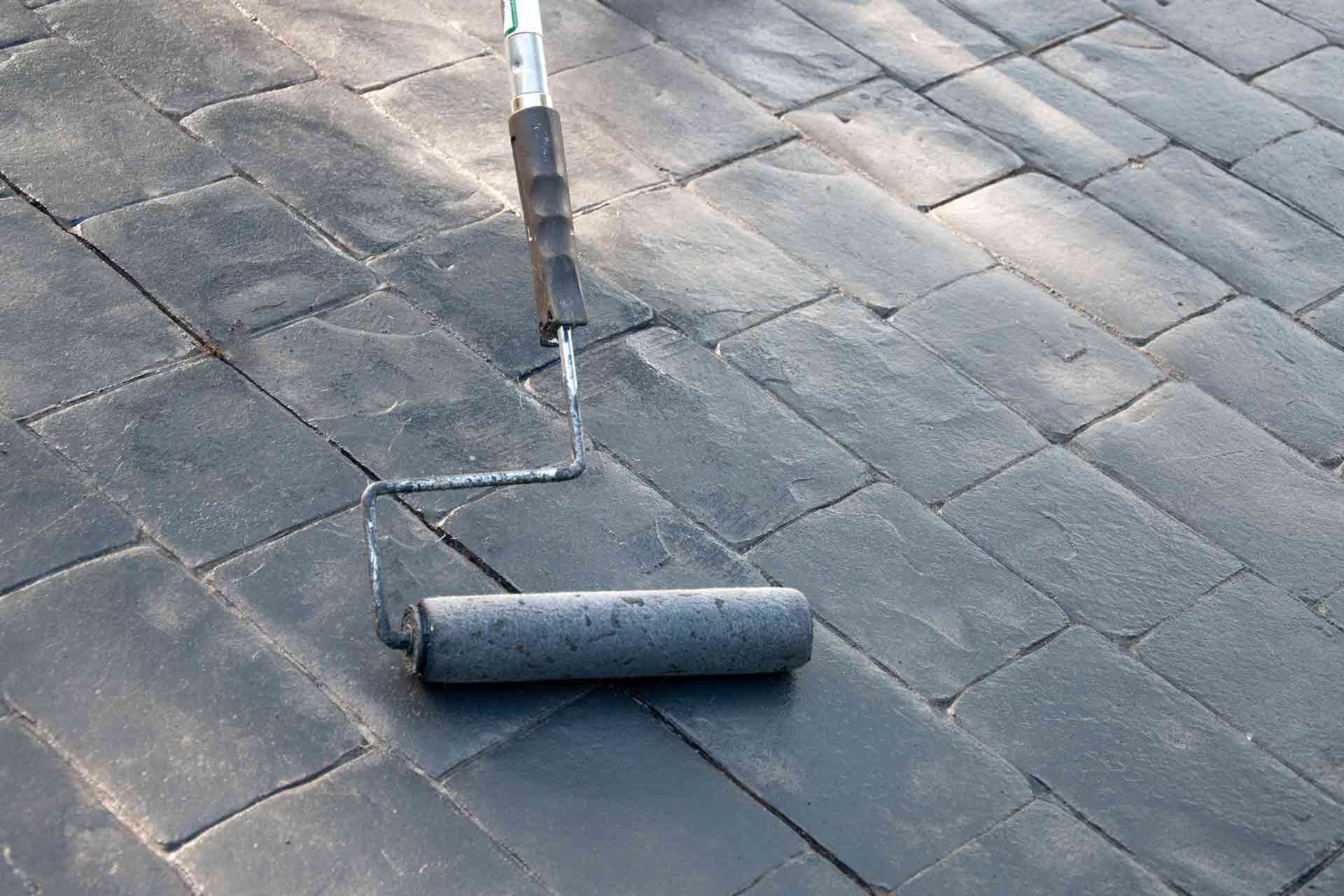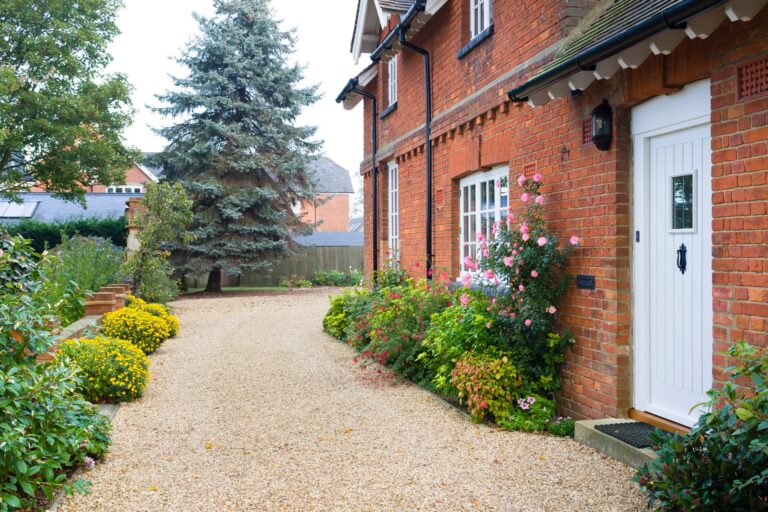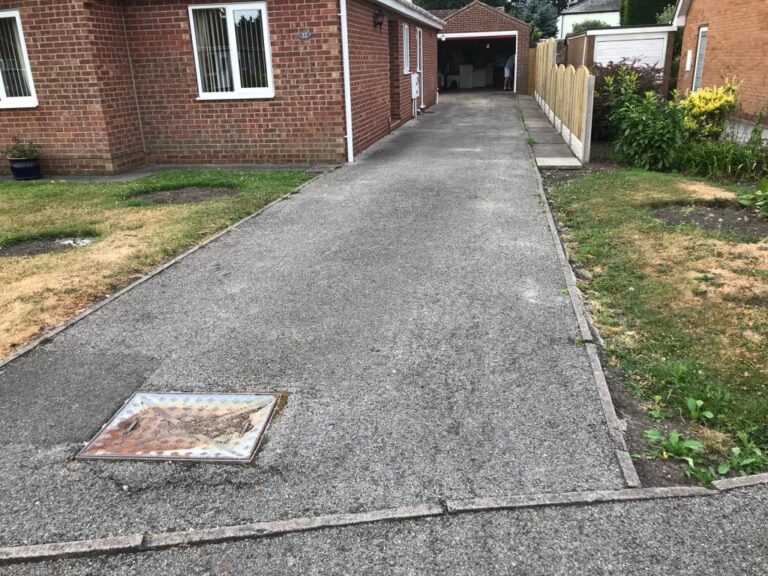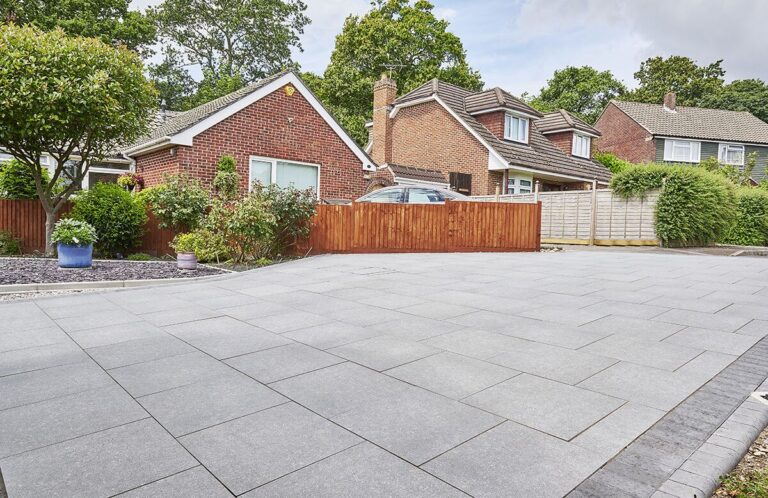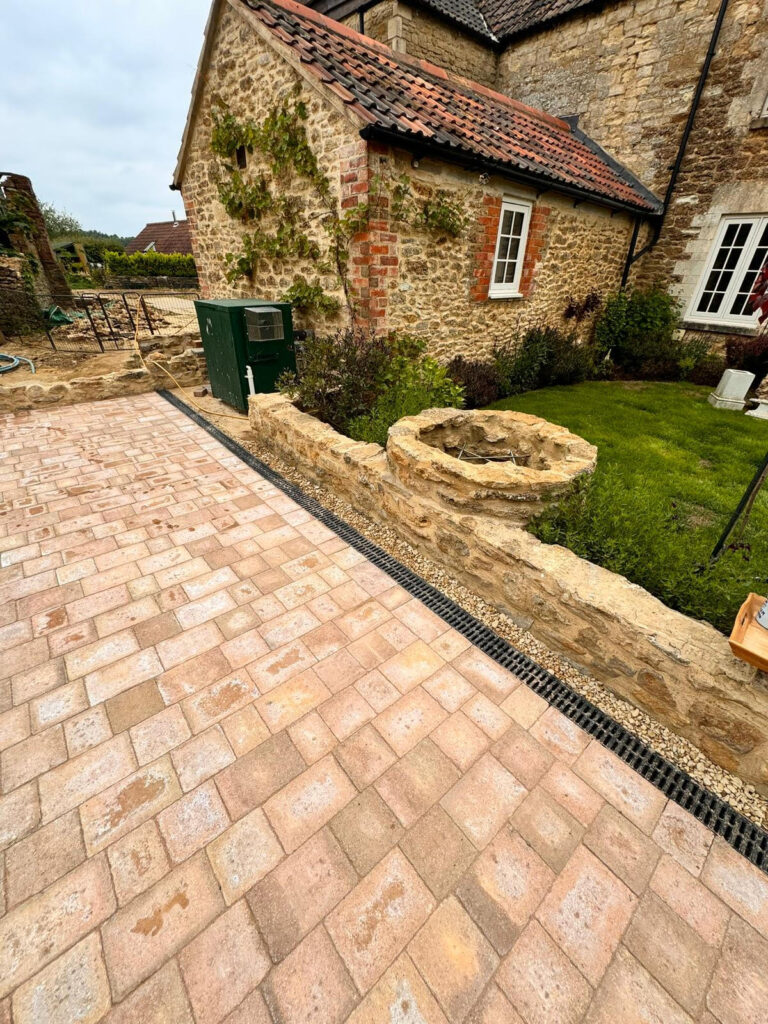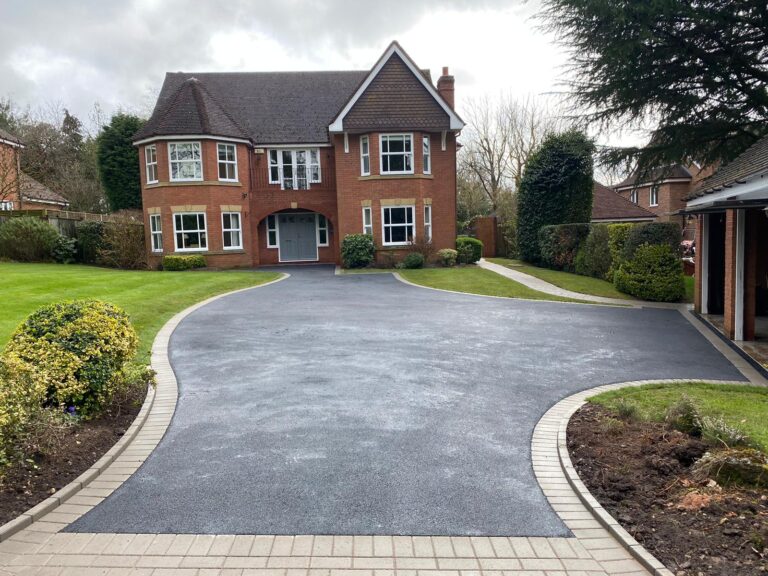A driveway is a significant part of your home’s exterior, and just like any other outdoor surface, it requires maintenance to keep it looking its best.
One of the most common methods of maintaining a driveway is sealing.
Sealing your driveway can provide numerous benefits, but it may not always be necessary for every type of driveway.
In this guide, we’ll explore whether sealing is a good investment and look at the different sealing products available for various types of driveways.
What Does Sealing a Driveway Involve?
Sealing a driveway involves applying a protective coating over the surface. This layer acts as a barrier against moisture, stains, and the effects of weather, such as UV damage and freezing temperatures. The process generally involves cleaning the surface thoroughly, repairing any cracks or damage, and then applying the sealant using a brush, roller, or sprayer. Sealing can be done on various types of driveways, including tarmac, concrete, and block paving.
Is Sealing Your Driveway Worth the Investment?
The decision to seal your driveway depends on several factors, such as the type of driveway you have, the local climate, and how much maintenance you’re willing to do. Here are some of the benefits and drawbacks to help you decide whether sealing is worth the investment for your driveway.
Benefits of Sealing a Driveway
-
Protection Against Stains and Damage: Sealing creates a protective layer over the surface of the driveway, preventing oil, petrol, and other substances from penetrating the surface. This is particularly beneficial for tarmac and concrete driveways, which are more prone to stains and damage. A sealant helps protect the driveway from spills, which can be difficult to remove if left untreated.
-
Weather Resistance: In the UK, weather conditions can be harsh on driveways. Constant exposure to rain, snow, and frost can cause cracks and erosion, especially on tarmac and concrete surfaces. Sealing your driveway helps prevent water from seeping into the material, reducing the risk of cracks, potholes, and further damage caused by freezing and thawing cycles.
-
Enhanced Appearance: Sealing enhances the colour and texture of your driveway, making it look fresh and new. It can also prevent fading caused by the sun’s UV rays, which can cause concrete and tarmac surfaces to become discoloured over time. A good sealant can make your driveway look glossy and well-maintained, increasing your home’s curb appeal.
-
Improved Durability: Regularly sealing your driveway can extend its lifespan by protecting it from the elements. A well-maintained driveway is less likely to crack, erode, or suffer from weed growth, ultimately saving you money on repairs in the long run.
-
Easier Cleaning: Sealed driveways are easier to clean, as dirt and debris are less likely to penetrate the surface. This means that washing and sweeping the driveway is quicker and requires less effort. The sealant helps maintain a smooth, non-porous surface that is resistant to dirt, stains, and moss.
Drawbacks of Sealing a Driveway
-
Initial Cost: While sealing your driveway is a relatively affordable maintenance task, the cost of sealant and the application process can add up, particularly if you have a large driveway. If you’re using a professional service to apply the sealant, this will add to the overall cost.
-
Maintenance Required: Sealing a driveway isn’t a one-time task. Over time, the sealant will wear away, particularly in high-traffic areas. This means you’ll need to reapply the sealant every 2–3 years, depending on the type of material and the local weather conditions. This ongoing maintenance may be a downside for homeowners looking for a more low-maintenance option.
-
Not Suitable for All Driveways: Sealing isn’t always necessary for every driveway type. For example, gravel driveways don’t require sealing, as the gravel itself provides natural drainage and protection. Additionally, some driveways, like block paving, may not benefit from sealing unless they have been properly maintained and cleaned first.
Different Sealing Products Available
When deciding to seal your driveway, it’s essential to choose the right product for the material of your driveway. Here are some common types of sealants for different driveway surfaces:
-
Tarmac Driveway Sealants: Tarmac sealants are typically made from bitumen or acrylic-based compounds. These sealants provide a durable and flexible protective coating for tarmac driveways, reducing cracking and wear. Some tarmac sealers offer a glossy finish, while others provide a matte look. Depending on the formula, they can also provide protection against UV rays, petrol, and oil stains.
-
Concrete Driveway Sealants: Concrete driveways benefit from sealants that are specifically designed for porous surfaces. These sealants create a barrier against stains, moisture, and dirt. Acrylic-based sealants are often used on concrete driveways, as they are durable, resistant to UV damage, and can provide a shiny finish. Additionally, there are penetrating sealants that penetrate the concrete surface, offering long-lasting protection without altering the appearance too much.
-
Block Paving Sealants: Block paving sealants are often designed to prevent weeds, moss, and algae growth between the joints. They also protect the surface from stains and dirt. These sealants come in both gloss and matt finishes, depending on your preference. It’s important to note that block paving sealants may need to be reapplied more frequently due to wear from foot traffic.
-
Resin Driveway Sealants: Resin-bound driveways are highly durable, but a protective sealant can enhance their appearance and protect them from wear. Resin sealants can improve the colour of the aggregates used in the driveway and make the surface more resistant to stains and algae growth. However, resin-bound driveways are generally low-maintenance and may not require sealing as often.
Sealing your driveway can be a worthwhile investment if you’re looking to protect it from stains, weather damage, and wear. It can enhance the appearance of your driveway, improve its durability, and reduce maintenance in the long run.
However, it’s important to choose the right type of sealant for your driveway material and be prepared for ongoing maintenance. If your driveway is in good condition and the weather in your area is relatively mild, sealing may be an unnecessary expense.
For tarmac, concrete, or block paving driveways exposed to harsh weather, sealing can be an excellent way to prolong their lifespan and maintain their aesthetic appeal.

